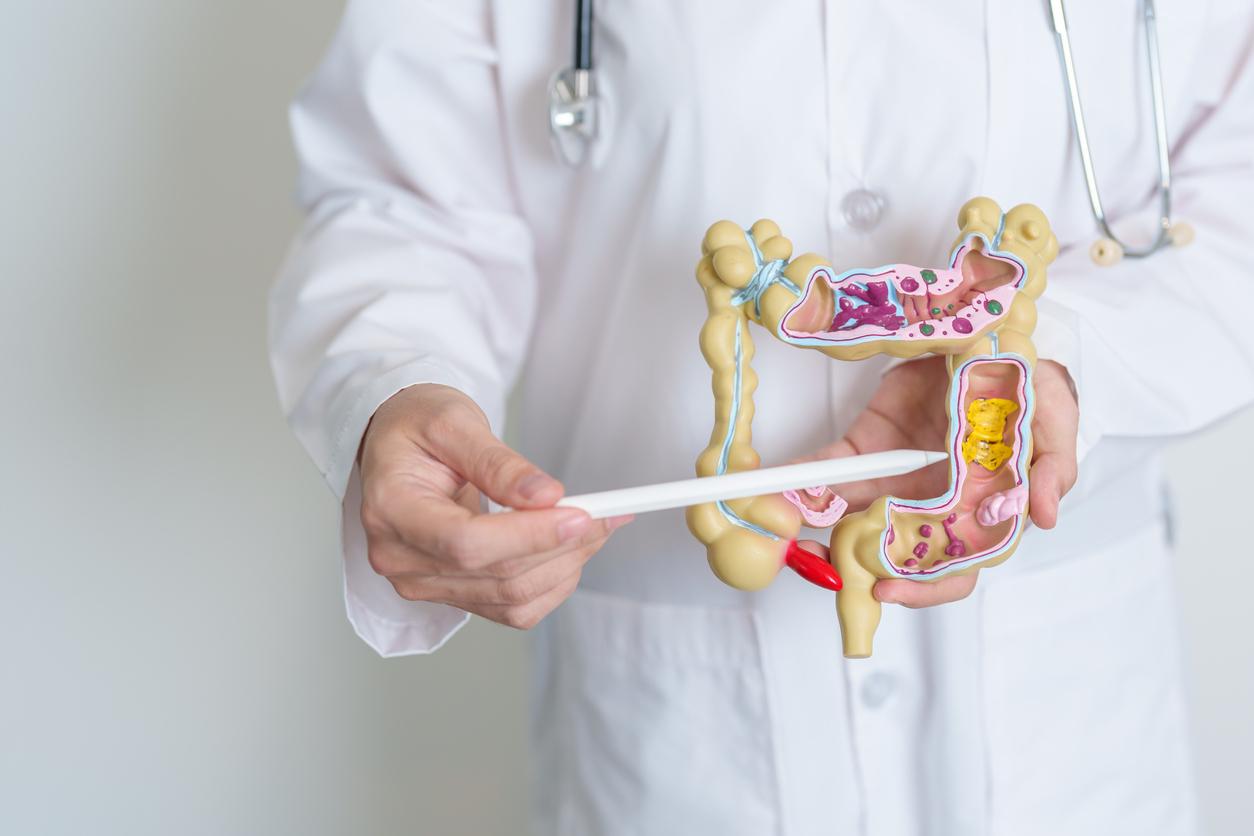Diet is not the only thing to consider when trying to improve the symptoms of Crohn’s disease.

- Crohn’s disease is a chronic inflammatory bowel disease of autoimmune origin which affects 1 in 1,000 people in France. Treatment is based on relieving flare-ups and preventing relapses.
- To better manage the disease, the patient can also follow a “self-care routine,” according to colorectal surgeon Dr. Stefan Holubar, a specialist on the subject.
- Quitting cigarettes, avoiding alcohol, managing stress, getting good sleep and doing sports while “listening to your body” are some of the routines that the patient can put in place.
One in 1,000 people are affected by Crohn’s disease in France, a chronic inflammatory bowel disease of autoimmune origin. Its causes are still poorly understood, but there is an increase in its prevalence in industrialized countries. Currently, treatment is based on relieving flare-ups and preventing relapses, including using anti-inflammatory drugs, immunosuppressive drugs and monoclonal antibodies. To better manage the disease, the patient can also follow a “self-care routine”, explain colorectal surgeon Dr. Stefan Holubar, in a publication from the Cleveland Clinic in the United States.
“The more you know about the factors that influence your condition, the easier it will be to decide what lifestyle changes you will (and won’t) make to improve your symptoms.”
Crohn’s disease: quit smoking and avoid alcohol
“Smoking is bad for your health in general, but it can also take its toll when you have Crohn’s disease.said the doctor. And it doesn’t matter what you smoke, because it’s the nicotine that’s to blame.” While he recommends giving up cigarettes completely, Dr. Holubar is a little less strict with alcohol, which he recommends consuming only occasionally. “Crohn’s disease irritates the intestinal lining and excess alcohol can also amplify inflammation. If your intestines are inflamed, you increase the risk of bleeding, malnutrition and overall worsening of symptoms”, he recalls, emphasizing that the irritation threshold is specific to each patient.
Learn to manage stress and get good sleep
It is now well established that there is a brain-gut axis, to the point that a “negative feedback loop” can be created: mental health problems trigger a Crohn’s flare-up, which increases the anxiety and depression, which triggers another flare-up. The “good side” of the story is that a positive feedback loop can also be created. In study published in 2020 in the journal Nature, researchers show that mindfulness therapies can improve inflammatory biomarkers.
Having good sleep hygiene also helps you manage stress better. Most adults need seven to eight hours of sleep per night.
Do physical activity “as much as the body allows”
Crohn’s disease does not prevent the patient from practicing physical activity, provided they listen to their body: “If you experience symptoms such as cramps, abdominal pain, bloating, or fever, allow yourself to rest. And when you feel good again, take the opportunity to move.” The specialist also advises discussing the most appropriate physical activities with your doctor.
















